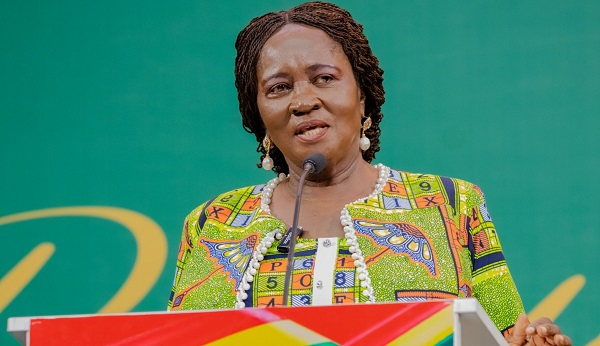When my 4-year-old son, Carter, was diagnosed with autism just before his second birthday, my world didn’t just shift — it tilted on its axis. Nonverbal yet endlessly curious, he’s a whirlwind of energy who’s taught me patience I didn’t know I had, resilience I didn’t know I needed, and the irreplaceable value of a fierce advocate. As a soon-to-be graduate with a bachelor’s degree in political science this September from Southern New Hampshire University’s online program, I’ve spent years dissecting how policy shapes lives — especially lives like Carter’s, where every decision echoes in ways most families never consider.
So when President Donald Trump signed an executive order on March 20, 2025, to dismantle the U.S. Department of Education, I didn’t join the chorus of panic.

Instead, I found reassurance in his promise to safeguard special education funding by transferring it to the Department of Health and Human Services. Here’s why I believe families like mine, in Pennsylvania and beyond, have every reason to stay calm — and maybe even hopeful. The headlines are loud and ominous: the Department of Education, which oversees the Individuals with Disabilities Education Act, is slated for demolition.
For the 7.5 million students nationwide who rely on IDEA — including Carter — that sounds like a gut punch. The program channels over $15 billion annually into schools, funding everything from speech therapy to adapted classrooms to the one-on-one aides who help kids like mine navigate their days.
In Pennsylvania, where roughly 300,000 kids qualify for these services, the stakes feel intensely personal. Could a massive federal overhaul really upend that lifeline? It’s a question that’s kept plenty of parents awake at night, staring at ceilings and calculating worst-case scenarios. But Trump’s plan isn’t the wrecking ball critics fear.
He’s vowed to preserve every dollar of IDEA funding, simply redirecting it from the Department of Education to HHS. Skeptics warn this shift could tangle bureaucracy or dilute oversight, and I’ll admit the logistics give me pause — change this big is rarely seamless, as we have seen in the past in Washington. Yet I see a silver lining.
HHS already manages health-related programs including Medicaid, which often intersect with special education needs. For Carter, that’s behavioral therapy to manage meltdowns or early intervention to build skills before kindergarten, which are things he has been receiving. Merging these under one agency could streamline a system that’s too often a maze of paperwork and phone calls.
Pennsylvania’s Department of Human Services already coordinates some disability services; aligning federal dollars with that framework feels less like a leap and more like a logical step forward. I understand the doubts. The Department of Education’s Office for Civil Rights has been a bulldog, holding schools accountable to IDEA’s mandates.
Trump’s proposal to shift that role to the Justice Department raises fair questions about bandwidth and expertise. But Pennsylvania’s history steadies my nerves. Our state has a legacy of championing disability rights — think the 1970s PARC v.
Commonwealth of Pennsylvania case , a landmark lawsuit that helped birth IDEA itself. Local advocates and leaders, including Sens. Dave McCormick and John Fetterman and Gov.
Josh Shapiro, have skin in this game. They’ve fought for our kids before, and I trust they’ll do it again, no matter which federal agency signs the checks. Trump’s blueprint leans heavily on block grants, handing states more flexibility with IDEA dollars.
Critics fret that cash-strapped districts might cut corners, but Pennsylvania’s track record suggests resilience. Last year, our per-pupil IDEA funding averaged about $1,800 — money that keeps Carter’s therapists in the room and his aides by his side. That won’t vanish; it’ll just wear an HHS label.
And with Elon Musk’s Department of Government Efficiency sniffing out waste, I’m cautiously optimistic we’ll see sharper, not shrunken, investments. Imagine trimming bloated administrative costs to fund more hours with specialists — those are the breakthroughs I dream of for Carter. As a political science student and a father, I’ve learned to balance trust with vigilance.
Congress still needs to greenlight this shift, and I’ll be glued to every vote, every amendment. But I’m not pacing the floor at night. Carter’s next milestone — maybe his first word, a “hi” or “dada” that’s been locked behind his lips — hinges on steady support, and I believe Trump’s promise delivers that.
Pennsylvania’s got our back, HHS can shoulder the load, and special education will hold strong. To other parents out there, clutching coffee and scrolling through dire predictions: take a deep breath. Our kids’ futures are safer than the headlines suggest.
This isn’t blind faith — its faith informed by study, by watching Carter defy odds, and by knowing our state’s resolve. The system is changing, yes, but it’s not collapsing. For my son, for your kids, it’s going to be okay.
This is a contributed opinion column. Stephen Eustis, Jr. is a Stroudsburg resident studying political science at Southern New Hampshire University.
The views expressed in this piece are those of its individual author, and should not be interpreted as reflecting the views of this publication. Do you have a perspective to share? Learn more about how we handle guest opinion submissions at themorningcall.com/opinions.
.
Politics

Opinion: Special education will thrive under Trump’s plan

Opinion: The system is changing, yes, but it’s not collapsing. For my son, for your kids, it’s going to be okay.















